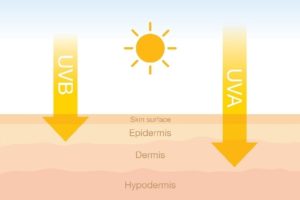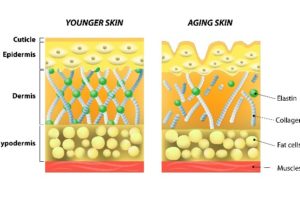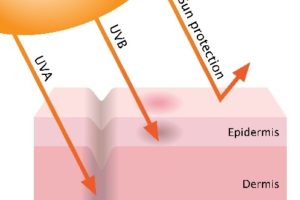Health conscious people like you want to protect themselves from the harmful sun rays.

There are a lot of terms used for sun protection, so let’s begin with the definitions.
SPF: Sun Protection Factor, a rating system to indicate the degree of protection from UVA radiation. The higher the factor number, the higher the level of protection. SPF can range from 2 to 100. If you normally get a sunburn in 10 minutes, a SPF 15 product extends that time by 15 times to 150 minutes before burning.
UV Index: an abbreviation for ultraviolet index, an international scale derived by the Bureau of Meterology to indiate the amount of UV radiation that reaches the Earth’s surface. Scale spans from 1 to 20; level 3 and above can begin to cause skin damage.
UVA Rays: Rays that can cause skin cells to age and cause long-term skin damage including wrinkles. According to the American Cancer Society, these rays are also thought to play a role in some skin cancers.
UVB Rays: Rays that can damage skin cells directly and can cause sunburns. According to the American Cancer Society, these rays are thought to cause most skin cancers.

Epidermis: The outermost layer of skin which protects the body from bacteria, viruses, and infection. While it helps filter UV rays, it can’t completely stop UV damage, so you need to protect your skin.
Dermis: Layer beneath the epidermis and above the hypodermis. It controls the secretion of oils that serve as a protective barrier.
Hypodermis: Also known as the subcutaneous layer. Lower, deepest layer of skin made of fat and connective tissue, providing insolation and fat storage.
Melanin: Natural skin pigmentation that helps provide some skin protection by filtering UV rays. It can’t completely stop UV damage, so you need to take steps to protect your skin.
Collagen: a structural protein found in skin and other connective tissue. When the sun causes lips to burn, long lasting damage can occur. The collagen, for example, can be altered. Collagen is the protein that gives lips body and resilience – and helps keep wrinkles from forming.


Broad-spectrum sun protection: Product that protects you from both types of UV rays, UVA and UVB, helping reduce the risk of skin cancer.
Sun Care Lip Tips – How to take care of your lips from the sun
 With your active lifestyle, it’s unlikely you can completely avoid the sun. But as your lips are different and need special care versus the rest of your skin, Here are some tips on how to protect your skin and lips when enjoying the outdoors:
With your active lifestyle, it’s unlikely you can completely avoid the sun. But as your lips are different and need special care versus the rest of your skin, Here are some tips on how to protect your skin and lips when enjoying the outdoors:
- Wear a large sunhat to help protect your face
- Wear sunglasses to protect your eyes
- Use sunscreen to protect your body’s skin
- Do not lick your lips, the saliva acts like a lens to intensify sun exposure
- Use a lip balm with at least a 15 SPF value and apply early and often throughout the day
For our dear consumers in China we offer the daily care balms in three different flavors like Blistex Mint Lip Balm with SPF15.

